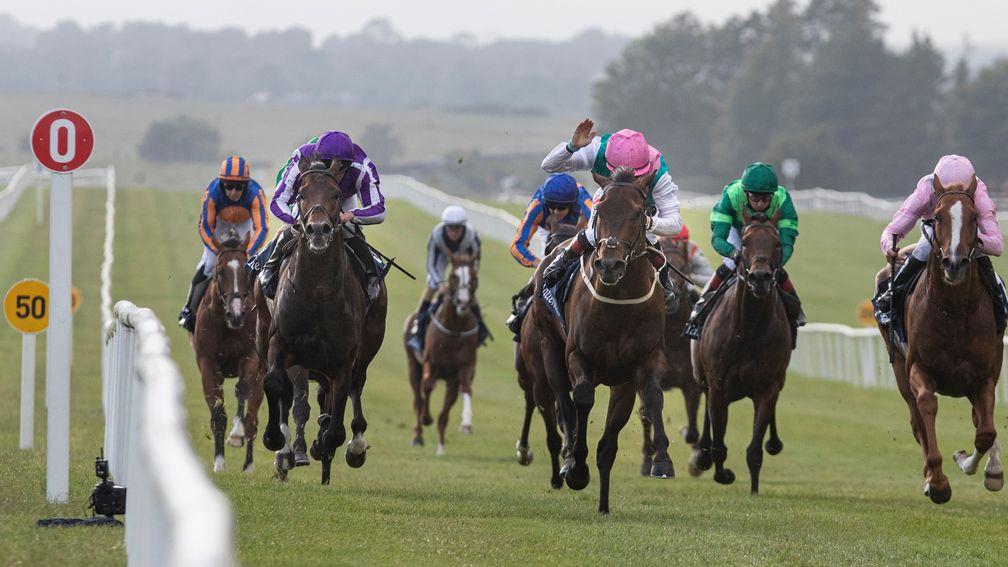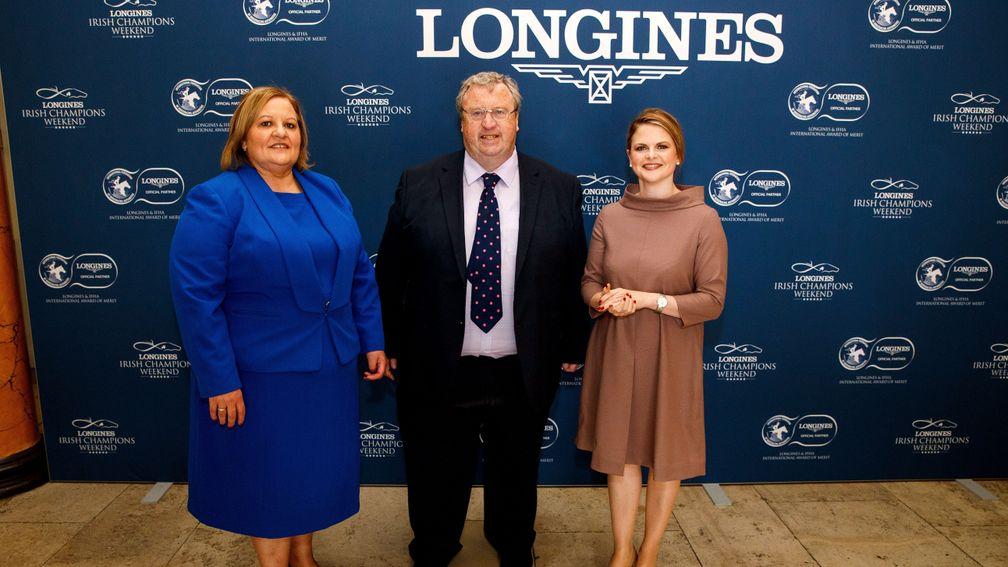HRI extends prize-money cuts until the end of the year but no further reductions

Sharply reduced prize-money across Irish racing will be extended for the remainder of 2020 after the board of Horse Racing Ireland on Tuesday signed off on maintaining the current cuts.
While the details will be thrashed out for each individual race and race track as the programme is updated in the coming weeks, the directive means that Group and Grade 1s will lose up to 50 per cent of their value until the end of the year, with racecourses' own contributions and levels of sponsorship other variables.
However, it also means that the tiered structure that is in place for the month of June, which dictates that lower value races lose the smallest percentage, is to be continued.
“We will continue with prize-money at the levels that were announced for June,” said HRI chief executive Brian Kavanagh.
“That means they won’t be cut again, and the scaling of the reductions remains the same.”
The tiering states that elite events will fall by between 30 and 50 per cent, reducing all the way down to minimum value contests of €10,000 falling by 10 per cent to €9,000.
It resulted in Friday’s Tattersalls Irish 2,000 Guineas being run for a purse of just €250,000, a 37.5 per cent drop on its €400,000 fund in 2019.
Racecourse viability
The viability of racecourses remains among HRI’s chief concerns due to the loss of many revenue streams.
While the government has indicated some attendances will be permitted at sporting events from July 20, that won’t come soon enough for the Galway races, which begin on July 27.
“We have sought clarity from government on that issue,” Kavanagh said, “but the expectation is that there will be limits on numbers when it does come about and that there would be strict protocols.
"The government has tended to make these announcements on the eve of the end of a phase, so it would be very hard for Galway to plan if they don’t know until nearly July 20.
“And it will bring its own challenges, as while you are able to enforce and apply protocols with people who are licensed and there is a relatively small number of people, it becomes more difficult when it is a public event. But we have got to get back to that situation for the well-being of the racecourses and the sport in general."

HRI has a €25,000 cancellation payment in place for tracks that have lost fixtures due to Covid-19, while it is legislating for a multi-million Euro rescue fund in an effort to ensure all 26 racecourses survive the pandemic.
“It very much depends on when tracks can get back to having the public on site,” Kavanagh said of the viability of tracks.
“We will deal with racecourses on an individual basis and we have already started to deal with some who have come to us, either looking for deferment of loan repayments or some extra loan finance. We don’t have any immediate concerns over closures, but if race-going were to be restricted for a period of years rather than months, then we have real problems and challenges.”
Of the added threat of reduced media rights money due to some betting shops closing their doors again on Tuesday, he said: "Obviously we would like to see them open, but the main element of media rights revenue comes from betting shops in the UK and as I understand it in England the vast bulk of the betting shops are open from Monday."
Owners a priority
Kavanagh added that getting owners back at race meetings is a HRI priority, but that the statutory instrument published by government precludes that until at least June 29, as it states only people required to work at a race meeting can attend.
He confirmed the authority is communicating with government on that issue, as well as in relation to the 14-day quarantine requirement that is proving a barrier to international racing competition, as well as posing a serious impediment to trade at upcoming sales.
He also stated that wholesale 48-hour declarations will remain in place for the foreseeable future. “They were put in place to allow for the health screening protocols, so as long as the protocols are in place, the 48-hour declarations will be. That will also allow us to evaluate them with an eye on the future.”
For all our exclusive Royal Ascot free bet offers and must-have daily promotions click the free bets button or go to racingpost.com/freebets
Published on inNews
Last updated
- Join Racing Post Members' Club for the very best in racing journalism - including Patrick Mullins' unmissable trip to see Gordon Elliott
- Join the same team as Ryan Moore, Harry Cobden and other top jockeys with 50% off Racing Post Members' Club
- Racing Post Members' Club: 50% off your first three months
- 'It’s really exciting we can connect Wentworth's story to Stubbs' - last chance to catch master painter's homecoming
- The jumps season is getting into full swing - and now is the perfect time to join Racing Post Members' Club with 50% off
- Join Racing Post Members' Club for the very best in racing journalism - including Patrick Mullins' unmissable trip to see Gordon Elliott
- Join the same team as Ryan Moore, Harry Cobden and other top jockeys with 50% off Racing Post Members' Club
- Racing Post Members' Club: 50% off your first three months
- 'It’s really exciting we can connect Wentworth's story to Stubbs' - last chance to catch master painter's homecoming
- The jumps season is getting into full swing - and now is the perfect time to join Racing Post Members' Club with 50% off